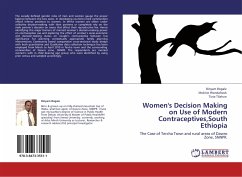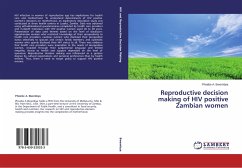The socially defined gender roles of men and women gauge the power balance between the two sexes. In developing countries most communities afford inferior positions to women. In effect women are either under collective decision-making with their partners or completely rely on the male partner s decision on issues that affect their reproductive live. Hence identifying the major barriers of married women s decision-making power on contraceptive use and exploring the effect of women s socio-economic and decision-making status on couple s contraceptive behavior has significance for planning contextually appropriate family planning interventions. Community based comparative cross-sectional study design with both quantitative and Qualitative data collection technique has been employed from March to April 2010 in Tercha town and the surrounding communities of Dawro zone, SNNPR. The respondents are married women s with in child bearing age group who were identified by using prior census and sampled accordingly.
Bitte wählen Sie Ihr Anliegen aus.
Rechnungen
Retourenschein anfordern
Bestellstatus
Storno








